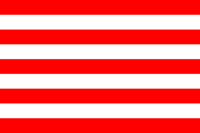Mazapahit
| Conventional short name: | |
| Local: | Mazapahit |
| English: | Majapahit |

| |
| Language: | Javanese |
| Cities: | |
| Capital: | Jogjakarta |
| Largest: | Zajakarta |
| Other: | Samaran̊, Bandun̊ |
| Maharaza: | ??? |
| Population: | 170,000,000 Majapahitians |
| Independence: | from Singhasari |
| Date: | 1295 |
| Currency: | Mazapahitian rupiah |
| Organizations: | Austronesian League |
Mazapahit is a state in islands north of Australia. It is a member of the Austronesian League, although it is participating less after the revolution.
The majority of people in Mazapahit are primarily Hindu with Buddhist, Muslim, Christian (mainly Borneian Church), and Confucian minorities. Mazapahit's society is divided into four castes:
- Sudras - peasants making up more than 90% of population.
- Wesias - the caste of merchants
- Satrias - the warrior caste, which also includes the nobility
- Brahmans - holy men and priests
In 1995, the traditional absolutist Hindu monarch of Mazapahit was overthrown by radical Sudras and Wesias. Prior to that, there was a perception among the Sudras and Wesias that the upper castes (Satrias and Brahmans) who were ruling the country were very corrupt and that the extravaganza of the absolute monarch no longer deserved the title of Devaraza (God-king). This led to the establishment of several tetracameralist groups among the lower castes, the largest of them being Gerakan (meaning just "The group"), which later led to the revolution.
The revolution introduced tetracameralist parliamentarism. The monarch was stripped of his status as Devaraza and turned into a symbolic head of state with no political powers. The former bicameral parliament, which had earlier consisted only of two chambers for the Satrias and the Brahmans, was turned into a tetracameral parliament by introducing two new chambers for the Sudras and the Wesias. The chambers for the Sudras and the Wesias were given greater political powers than the chambers for Satrias and Brahmans.
See also: Southeast Asia in Ill Bethisad